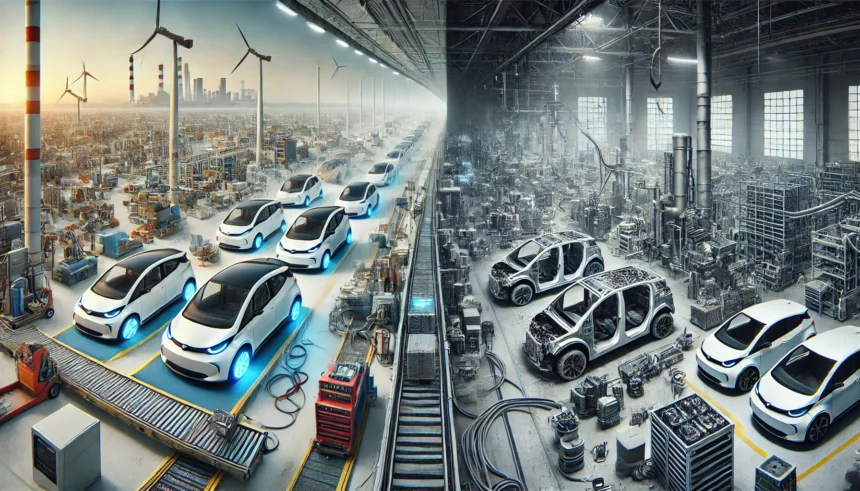Recent developments in the electric vehicle (EV) industry suggest a period of reassessment as numerous startups face bankruptcy and major automakers reconsider their electric-only future plans.
Trouble in the EV Startup Sector
Startup Failures Highlight Financial Woes Several high-profile electric vehicle startups, including Byton, Sono Motors, and Fisker, have failed, largely due to financial mismanagement and funding issues. These failures underline the severe challenges new companies face in the competitive automotive market.
Major Automakers Pull Back Simultaneously, automotive giants like Volkswagen and Mercedes are scaling back their initial ambitious plans for an electric-only future. Volkswagen has announced a significant investment in developing new combustion engine technologies, indicating a more cautious approach to transitioning away from traditional fuel vehicles.
Challenges and Adjustments
Economic Decisions and Market Realities The decision to slow down the transition to electric vehicles is primarily driven by economic factors, including the current lack of demand in key markets such as the USA and Germany. Manufacturers are wary of producing vehicles that may not sell, as seen by the stagnating sales figures in these regions.
Lack of Infrastructure and Market Readiness In addition to market reluctance, the lack of sufficient charging infrastructure, particularly in Eastern Europe, and the high entry cost of electric vehicles contribute to the slowdown. These factors make it difficult for a broader customer base to adopt electric vehicles despite the growing interest.
Future Outlook
Industry Leaders Remain Committed to Electrification Despite these setbacks, major industry players have not abandoned their commitment to electrification. Companies like Volkswagen, BMW, and Mercedes assert that electric vehicles are the future, driven by market forces and regulatory environments, especially in China.
The Road Ahead The industry expects that as market conditions improve and technologies advance, electric vehicles will eventually dominate the automotive market. The current challenges are viewed as temporary hurdles rather than a complete reversal of the electric vehicle trend.
Conclusion The electric vehicle market is currently navigating through a complex phase of adjustment and recalibration. While startups face significant hurdles, established automakers are taking a more measured approach to their electric vehicle strategies. The long-term outlook remains positive, with continuous commitment to advancing EV technology and infrastructure development.
Internal Link: Explore the latest trends in the Electric Vehicle Market
External Link: For more information on global automotive trends, visit Automotive Industry Analysis Portal.
















